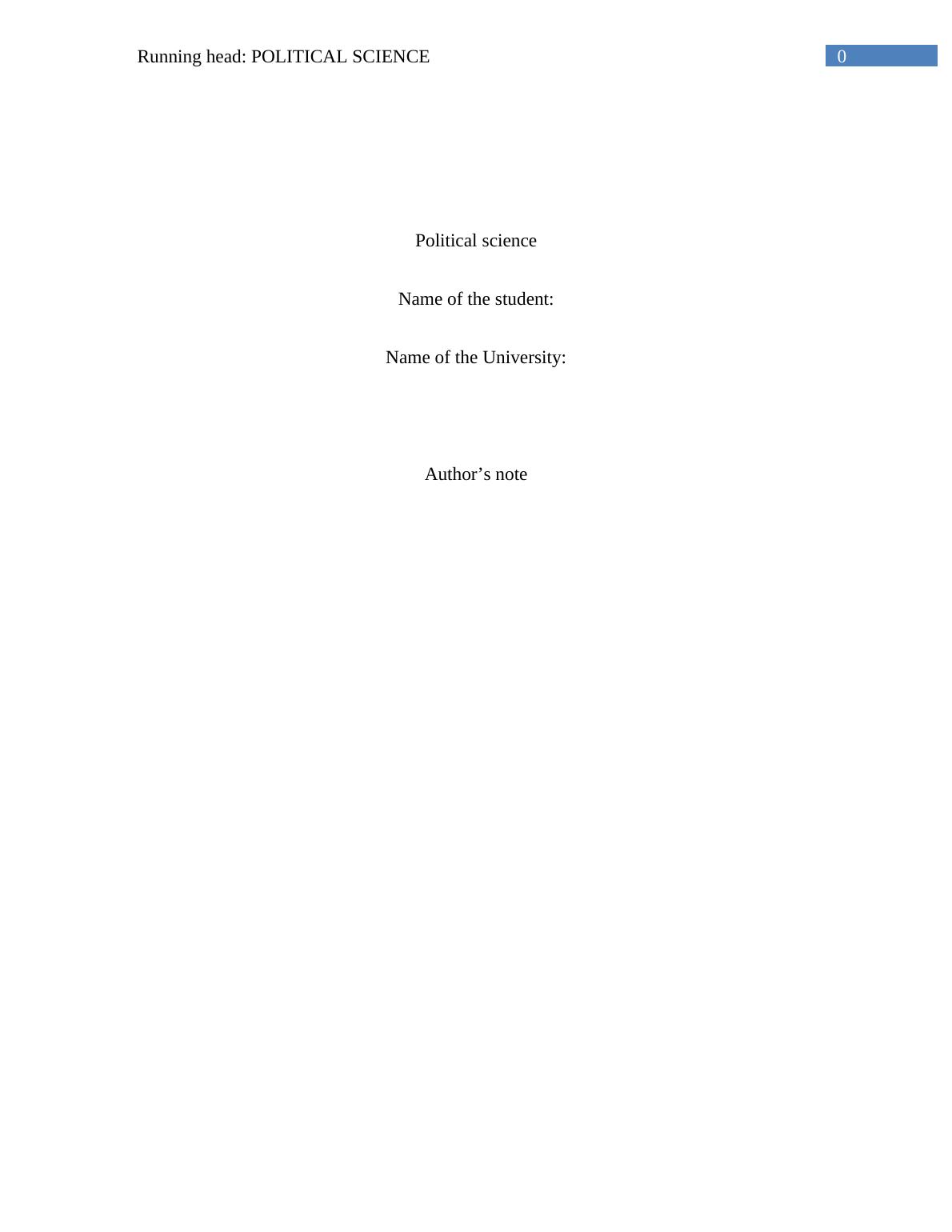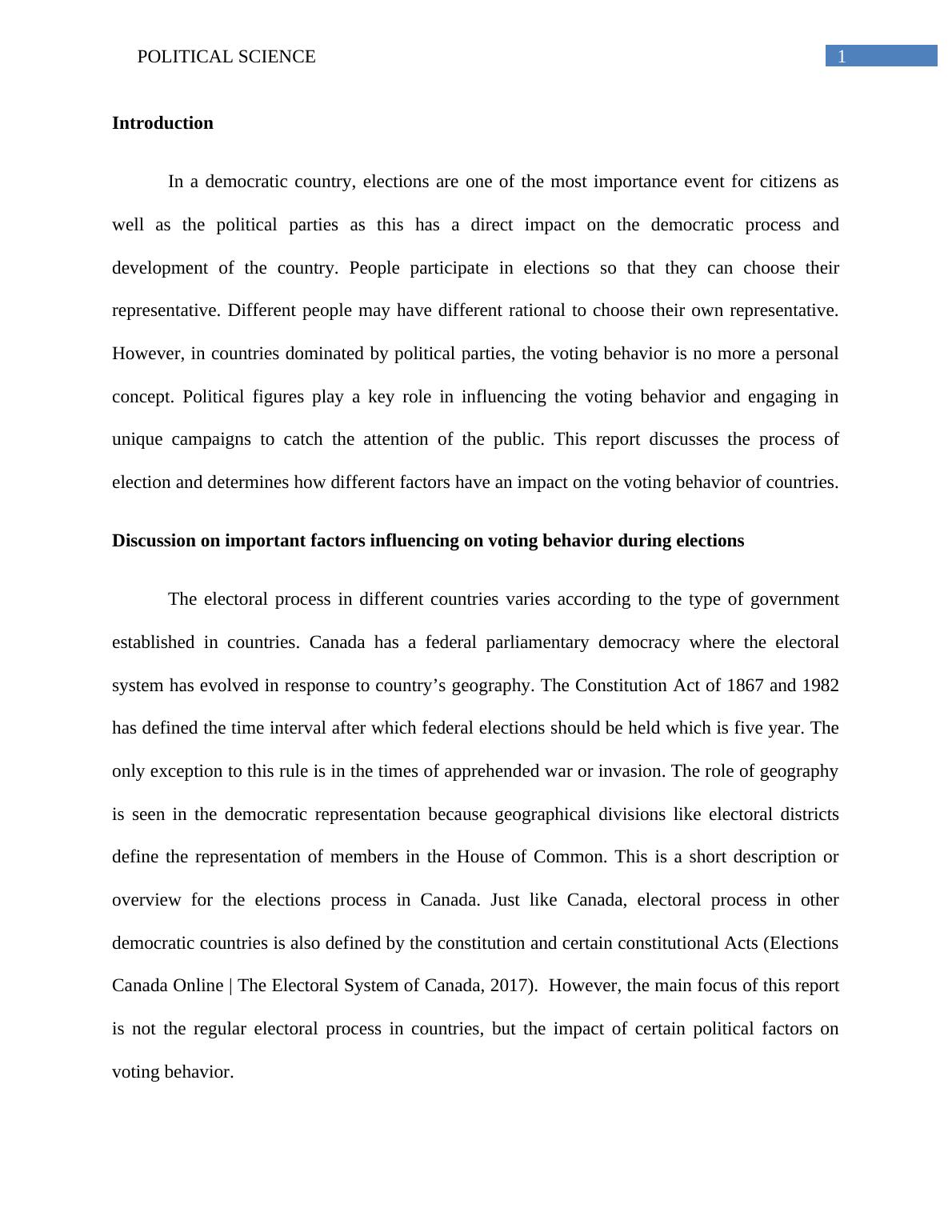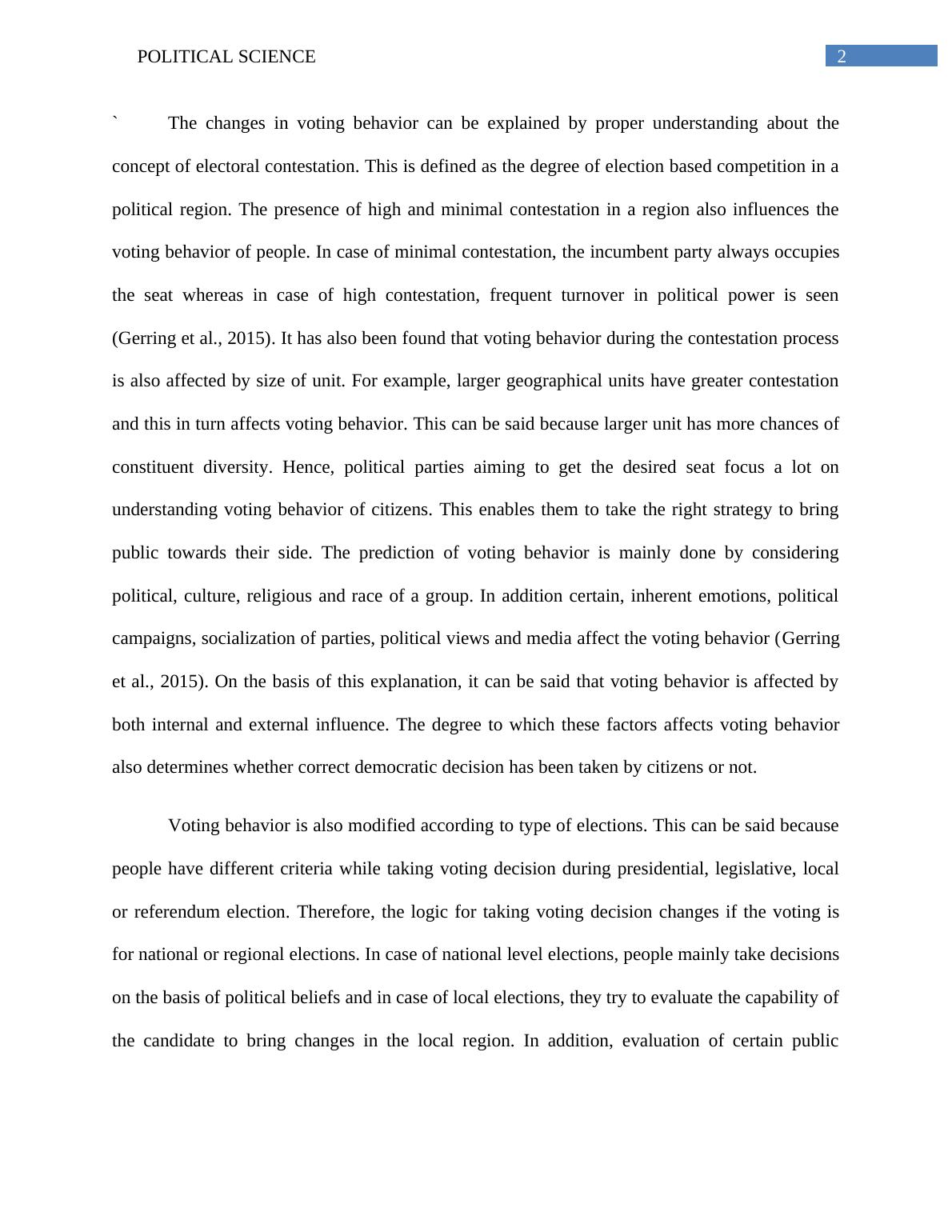PSCI 100: Introduction to Political Science
Added on 2020-04-15
8 Pages1897 Words33 Views
0Running head: POLITICAL SCIENCEPolitical scienceName of the student:Name of the University:Author’s note

1POLITICAL SCIENCEIntroductionIn a democratic country, elections are one of the most importance event for citizens aswell as the political parties as this has a direct impact on the democratic process anddevelopment of the country. People participate in elections so that they can choose theirrepresentative. Different people may have different rational to choose their own representative.However, in countries dominated by political parties, the voting behavior is no more a personalconcept. Political figures play a key role in influencing the voting behavior and engaging inunique campaigns to catch the attention of the public. This report discusses the process ofelection and determines how different factors have an impact on the voting behavior of countries.Discussion on important factors influencing on voting behavior during electionsThe electoral process in different countries varies according to the type of governmentestablished in countries. Canada has a federal parliamentary democracy where the electoralsystem has evolved in response to country’s geography. The Constitution Act of 1867 and 1982has defined the time interval after which federal elections should be held which is five year. Theonly exception to this rule is in the times of apprehended war or invasion. The role of geographyis seen in the democratic representation because geographical divisions like electoral districtsdefine the representation of members in the House of Common. This is a short description oroverview for the elections process in Canada. Just like Canada, electoral process in otherdemocratic countries is also defined by the constitution and certain constitutional Acts (ElectionsCanada Online | The Electoral System of Canada, 2017). However, the main focus of this reportis not the regular electoral process in countries, but the impact of certain political factors onvoting behavior.

2POLITICAL SCIENCE`The changes in voting behavior can be explained by proper understanding about theconcept of electoral contestation. This is defined as the degree of election based competition in apolitical region. The presence of high and minimal contestation in a region also influences thevoting behavior of people. In case of minimal contestation, the incumbent party always occupiesthe seat whereas in case of high contestation, frequent turnover in political power is seen(Gerring et al., 2015). It has also been found that voting behavior during the contestation processis also affected by size of unit. For example, larger geographical units have greater contestationand this in turn affects voting behavior. This can be said because larger unit has more chances ofconstituent diversity. Hence, political parties aiming to get the desired seat focus a lot onunderstanding voting behavior of citizens. This enables them to take the right strategy to bringpublic towards their side. The prediction of voting behavior is mainly done by consideringpolitical, culture, religious and race of a group. In addition certain, inherent emotions, politicalcampaigns, socialization of parties, political views and media affect the voting behavior (Gerringet al., 2015). On the basis of this explanation, it can be said that voting behavior is affected byboth internal and external influence. The degree to which these factors affects voting behavioralso determines whether correct democratic decision has been taken by citizens or not. Voting behavior is also modified according to type of elections. This can be said becausepeople have different criteria while taking voting decision during presidential, legislative, localor referendum election. Therefore, the logic for taking voting decision changes if the voting isfor national or regional elections. In case of national level elections, people mainly take decisionson the basis of political beliefs and in case of local elections, they try to evaluate the capability ofthe candidate to bring changes in the local region. In addition, evaluation of certain public

End of preview
Want to access all the pages? Upload your documents or become a member.
Related Documents
Should Canada Have an Electoral Reformlg...
|6
|1875
|109
The Canadian Parliamentlg...
|8
|1836
|342
Duties of members of Congress and the Electoral Collegelg...
|4
|935
|75
Election in the USA State of Virginialg...
|8
|2067
|25
Basic Concepts of Democracylg...
|10
|2822
|158
Election and Political Campaigns by Canadian Political Partieslg...
|11
|3163
|439
